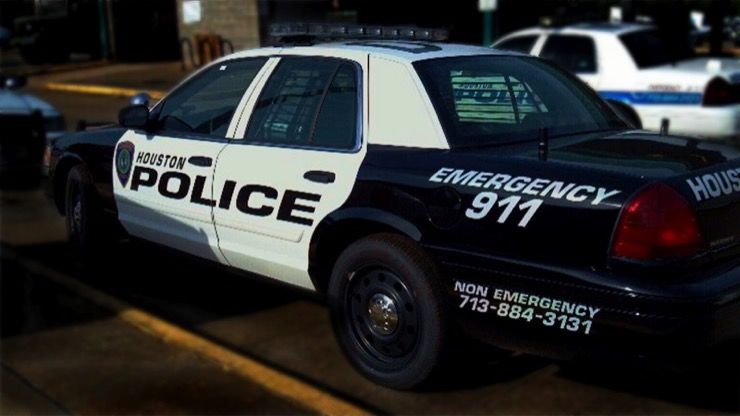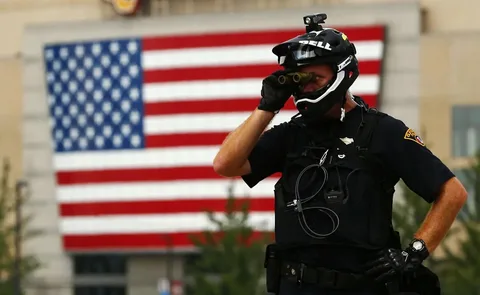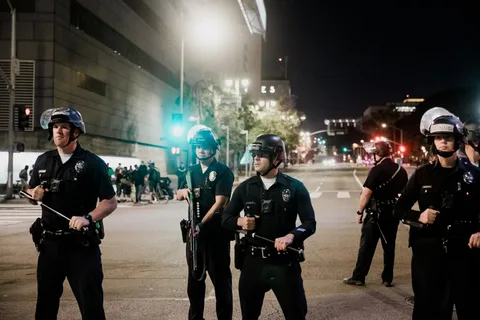
Non Emergency Police Number in America
Outline
- What’s the Non-Emergency Police Number in America?
- Why Do You Need the Non-Emergency Police Number?
- How to Find the Non-Emergency Police Number for Your Area
- When Should You Call the Non-Emergency Police Number?
- What Happens When You Call the Non-Emergency Number?
- How to Use the Non-Emergency Police Number Safely
- FAQs About Non-Emergency Police Numbers
What’s the Non-Emergency Police Number in America?
It’s likely that you’ve had a time when you didn’t require the emergency number 911, but required assistance with the help of police.
Perhaps you’ve noticed suspicious activity around your area or you’re required to report the loss of an item. In such instances you shouldn’t limit emergency resources by things that aren’t urgent.
This is how is where Emergency Police Non-Emergency Number is found.
In America there isn’t a single national number for police calls that are not emergency. In fact, every city police force has its own emergency number. The number is usually used for situations that do not require an immediate response, but do require police intervention.
It’s a great tool to keep at hand in the back of your purse.

Why Do You Need the Non-Emergency Police Number?
You may be thinking “Why not just call 911 for everything?” It’s a good to ask.
This is the truth: 911 is intended for emergency situations only. The idea of calling 911 for issues that aren’t urgent isn’t only a bad idea, it’s hazardous. It blocks the emergency number which makes it more difficult for emergencies of real importance to be handled.
The emergency number is a way to keep 911 open for people who are most in need. It can be used to:
- Reporting minor offenses (like vandalism, theft, or other activity that is suspicious)
- Reports to be filed (for things such as lost property or stolen items)
- Inquiring for details (about the local law or forthcoming events)
- Reporting noisy neighbours
- Tips on how to prevent criminals
The right date and time to dial the emergency number could make a huge difference in how the system functions for all.
How to Find the Non-Emergency Police Number for Your Area
Your next concern you’re likely considering is “How do I even find the non-emergency number in my area?”
It’s not always as simple as it looks however, here are a few methods to find it:
1. Google It
Quick Google search will usually lead you to the correct direction. Enter your city’s name, followed by “non-emergency police number”. For instance, “Chicago non-emergency police number” or “New York City non-emergency police number”.
2. Visit Your Local Police Department’s Website
The majority of local police departments have their emergency numbers on their home page. It is the best source. There are also information on what constitutes an emergency.
3. Call 311
In certain places the 311 number is a viable option in non-urgent circumstances. It’s an municipal services hotline and they’ll help you find the right police department to meet your needs.
4. Look on Your Bill
Certain police departments have emergency number on bills for utilities, or local news bulletins. It’s worth checking out for.
When Should You Call the Non-Emergency Police Number?
The emergency number is excellent but how do you know when to make use of it? This is a straightforward guideline to help you make the right choice:
- Unusual activity: If you see something strange, like an individual wandering around in a building at night, dial the emergency number that is not an emergency.
- Reported noise complaints Do you have loud party or dogs disturbing the peace? Non-emergency.
- Accidents that are minor: When there’s no injury in the accident and it’s not causing any traffic problems using the emergency number, dial it.
- Lost property Have you lost your bike or wallet? Make a call to the non-emergency phone number and make a claim.
- Non-violent dispute: If your neighbour’s made threats, but there’s no immediate threat contact non-emergency.
When Not to Call:
- Anything that could be life-threatening: Call 911.
- Violent crime: Call 911.
- In-progress crime: Call 911.
-

Police Number in America
What Happens When You Call the Non-Emergency Number?
What happens after you dial the non-emergency phone number?
Here’s the summary:
- answering: A dispatcher will take the call and inquire about your circumstances. They’ll decide if a the police are required to intervene.
- Information: They’ll ask for crucial information like the location, type of issue and the parties involved. Be concise and clear.
- Delivery: Depending on the degree of the problem, they can send an officer to the location or provide advice on the next steps.
- Resolution In non-urgent cases it’s possible that you won’t receive an immediate response from the police however, you’ll receive an incident number or a police officer could be able to follow up later.
How to Use the Non-Emergency Police Number Safely
Here are a few suggestions to ensure your call is secure and smooth:
- Be truthful: Only use the non-emergency number to address non-urgent issues. If you’re uncertain, dial nonetheless. It’s better than to take a guess.
- Keep at peace: Keep your cool when you speak with the person who is dispatching you. They’re here to help and not to decide.
- Get your details prepared: Have all your information, including your address, the number of your vehicle or any other pertinent information, prepared. This will speed up the process.
- Be aware of what rights are available to you: Police can’t help in the event that you don’t know what you’re allowed to perform. Be aware of the laws in your region.
FAQs About Non-Emergency Police Numbers
What happens if I’m not sure whether this is an emergency situation?
It’s always better to contact and avoid being unprepared. If you’re uncertain it’s best to call the emergency number and describe the situation. If it’s an emergency situation, they’ll direct your call to the 911 number.
Can I dial the non-emergency number if I’m afraid and not in any danger?
Yes, absolutely. If you’re feeling uneasy but you’re not in immediate danger then the emergency number is the best option. It is possible to report a threat and an officer will examine the situation.
How do I handle it if dial an incorrect number?
Don’t worry! dispatchers are usually able to direct you to the right department if you dial a incorrect number. If you’re uncertain, dialling 311 is always a good choice for local assistance.
What happens in the event of an emergency after hours?
If you require police assistance outside of the normal hours and isn’t an emergency, dialling the non-emergency phone number is the best choice. The police will either have a person on duty or connect you with someone who can assist you.

Conclusion
The non-emergency number for police in America can be a useful source for situations that don’t require immediate emergency response, however still require police attention. If you’re investigating an incident that’s suspicious or minor issues, knowing when and how to utilize the non-emergency phone number will make sure that 911 is in the event of a real emergency.
Once you’ve got the facts Make sure you include the local phone number in your contact list. It can save you lots of time and stress as well as confusion later on.
Hope this helps! Let me know if you need more info or want to dive into any other topics.